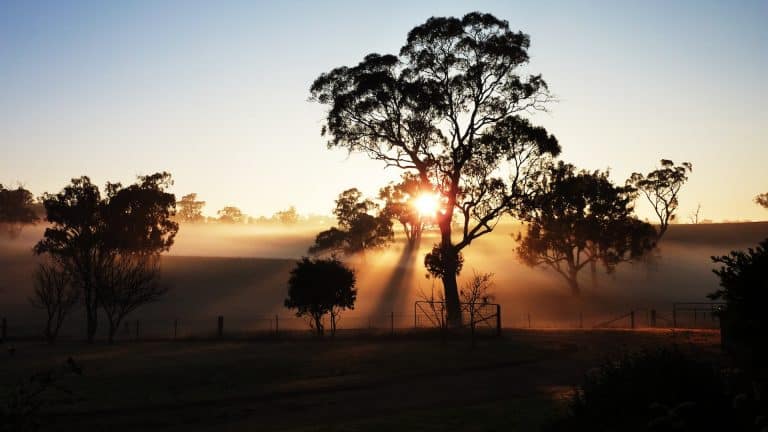
Working in a roadhouse in the Australian Outback is a unique and rewarding experience that offers a glimpse into the remote and rugged heart of the country. Roadhouses are vital stops for travelers, providing fuel, food, accommodation, and essential services in isolated areas. This guide will explore how to find a job at a roadhouse, the types of jobs available, eligibility for renewing a Working Holiday Visa (WHV), and answer some common questions about this adventurous job opportunity. Emily also shares her original and unusual work experience in a roadhouse in Australia.
Table of Contents
Finding a job at a Roadhouse
There are several options for you to start with. To give you an idea, here are some ideas to guide you:
- Online Job Portals: Websites like Seek, Indeed, and Gumtree often list roadhouse job vacancies. Look for keywords such as “roadhouse,” “outback,” and “remote hospitality.”
- Specialized Recruitment Agencies: Agencies that focus on rural and remote job placements, such as MLKA Hospitality Recruitment and Workabout Australia, can help you find roadhouse positions.
- Direct Applications: Identify roadhouses in areas you’re interested in working and contact them directly. Many roadhouses have websites or social media pages where they advertise job openings.
- Word of Mouth: Networking with other travelers and backpackers can be an effective way to learn about job opportunities. Backpacker hostels and online forums are great places to start.
What is a roadhouse?
A roadhouse is usually a roadside restaurant-motel that allows travellers to take a break during their trip. Ours consisted of a caravan park, a restaurant open at night, a small shop at the office, and cabins (from single-rooms to cabins for up to six people). Our roadhouse, like many others, was a multi-business: a caravan park and a cattle station (beef farm).
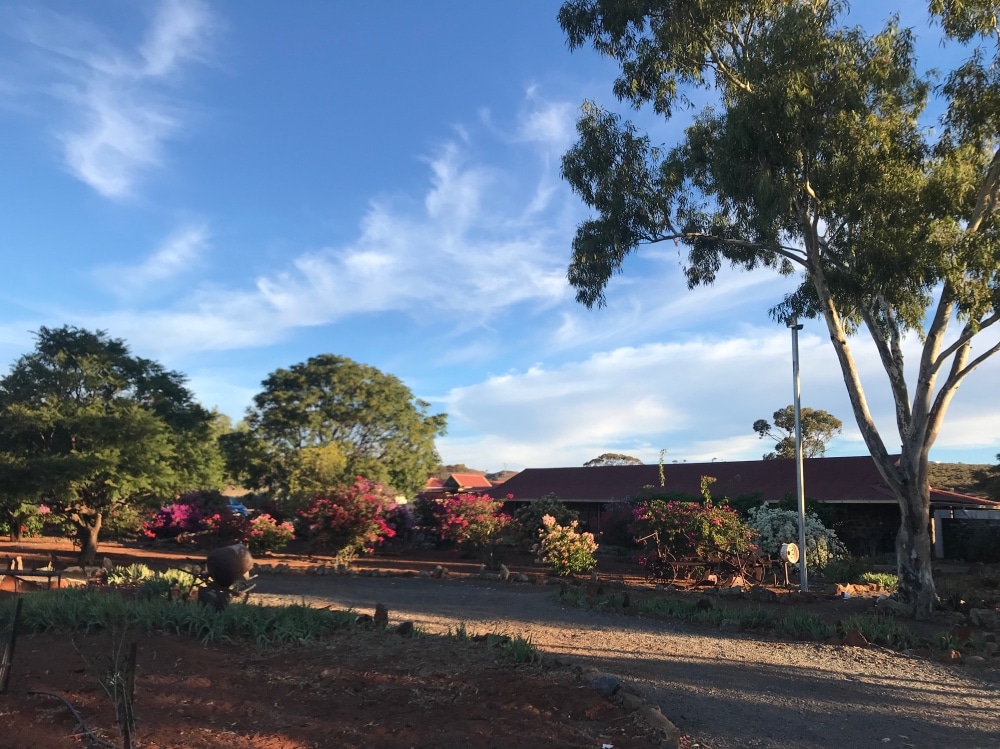
Types of jobs at a Roadhouse
Hospitality work
- Cook/Chef: Prepare meals for guests, often in a simple, hearty style suitable for travelers.
- Waitstaff: Serve food and beverages, handle customer inquiries, and maintain dining areas.
- Bar Staff: Serve drinks, manage stock, and ensure a welcoming atmosphere in the bar area.
Customer service
- Front Desk/Reception: Handle bookings, check-ins, and customer inquiries, and provide local information.
- Shop Assistant: Manage the convenience store, handle transactions, and restock shelves.
Maintenance and general duties
- Groundskeeper/farmhands: Maintain the roadhouse’s exterior areas, including gardens, parking lots, and general upkeep.
- Fuel Attendant: Assist customers with refueling, manage fuel payments, and ensure safety standards.
- Cleaners: you will be in charge of the housekeeping of bedrooms/cabins or caravan park grounds or facilities.
Eligibility for renewing a Working Holiday Visa (WHV)
To be eligible for a second-year WHV, you must complete 88 days of specified work in a designated regional area. Work at a roadhouse can qualify if it falls under the hospitality sector and is located in a remote area.
Read also : Eligible areas to renew your WHV in Australia
For a third-year WHV, you must complete six months of specified work during your second year. Again, working in a roadhouse in a qualifying area can count towards this requirement.
Important Tips:
- Ensure the roadhouse is in an eligible postcode area as defined by the Department of Home Affairs.
- Keep detailed records of your employment, including payslips and contracts, to prove your work history when applying for visa extensions.
Emily’s experience
How I found my job in a roadhouse
“We bought our van, we went on the road to find a job outside of Perth. Like any self-respecting backpacker, we searched for job advertisements on Gumtree. We also went job-hunting from farm to farm and posted ads in Facebook groups.
After three weeks of looking for work, we really started to get worried! It was then that a manager of a roadhouse, who had seen our Facebook ad, contacted us over the phone. After receiving all kinds of job proposals from working as topless waitresses to kangaroo hunters, we finally got the perfect offer: to work as farm hands in a roadhouse/ cattle station including food and accommodation. It did not even take us 5 minutes to jump in the van and start heading for the Nullarbor Plain!
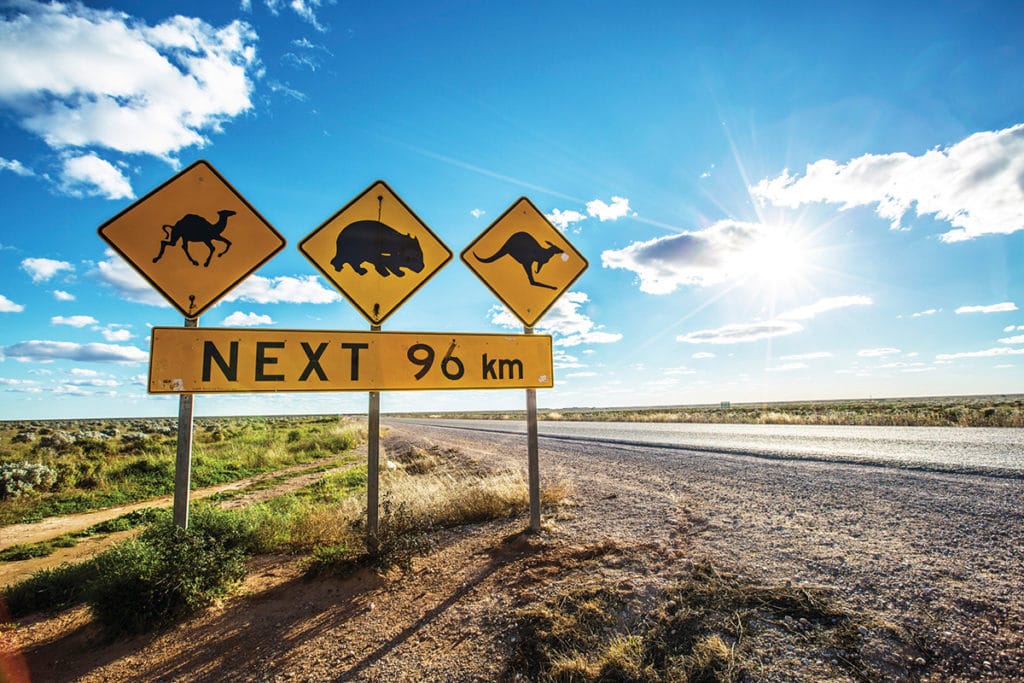
Our job as farm hands in a roadhouse
Two days after our new manager had called us, we arrived at an old sheep station in the Nullarbor Plain. A desert crossed by the Eyre Highway, which connects Western Australia to Adelaide and Melbourne. This desert highway stretches 1,200km and is lined with a large number of roadhouses. The one we stayed in was not too far into the Outback: 3 hours north of Esperance and 100km from the closest village!
So we arrived in our van at one of the first historic stations of the Nullarbor. It was truly authentic with its beautiful stone buildings and the ruins from 1870. There were kangaroos and emus everywhere, the “red dirt”, and a colourful sunset over the hills: No doubt, we were in Australia!
As farm hands, we had a wide variety of tasks. Our main duty was cleaning. We were in charge of cleaning the cabins and the ablutions blocks (sanitary facilities). Our day began with cleaning all morning. The afternoons varied from day to day, so sometimes tasks included painting, gardening, park maintenance, and fencing. The pace was rather steady. As our team was small, there was always something to do at the caravan park and the farm. We worked 8 to 10 hours a day for 14 days in a row. We then had a 4-day break, which we usually spent in Esperance and Kalgoorlie.
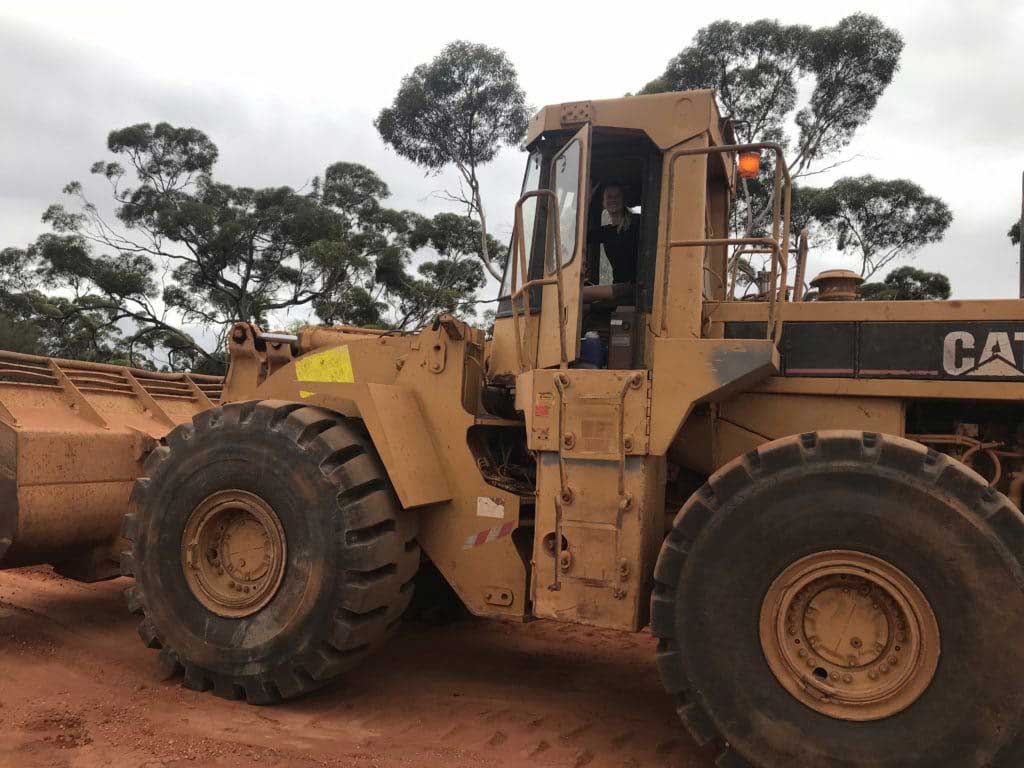
A very diverse job
The advantage of doing a farm hand job is that you help in all areas, which allowed us to experience all kinds of adventures. Just to mention a few examples such as driving a 4WD on bush tracks like rally drivers to feed the cows. Doing the housework while observing a baby kangaroo and his mother only a few meters away, playing with the puppies of the farm, finding a python in the bathroom, or hanging out with Squig, the domestic camel of the station.
I had never thought I’d get this excited about emptying over 20 garbage bins. If this meant going around the park in a quad, we were suddenly a lot more motivated! A few days after our arrival, I went into the Outback, 400km away from any civilization, on an explorer camp of the mining industry. Camping under the stars at night and driving bulldozers at daytime, it was a unique adventure!
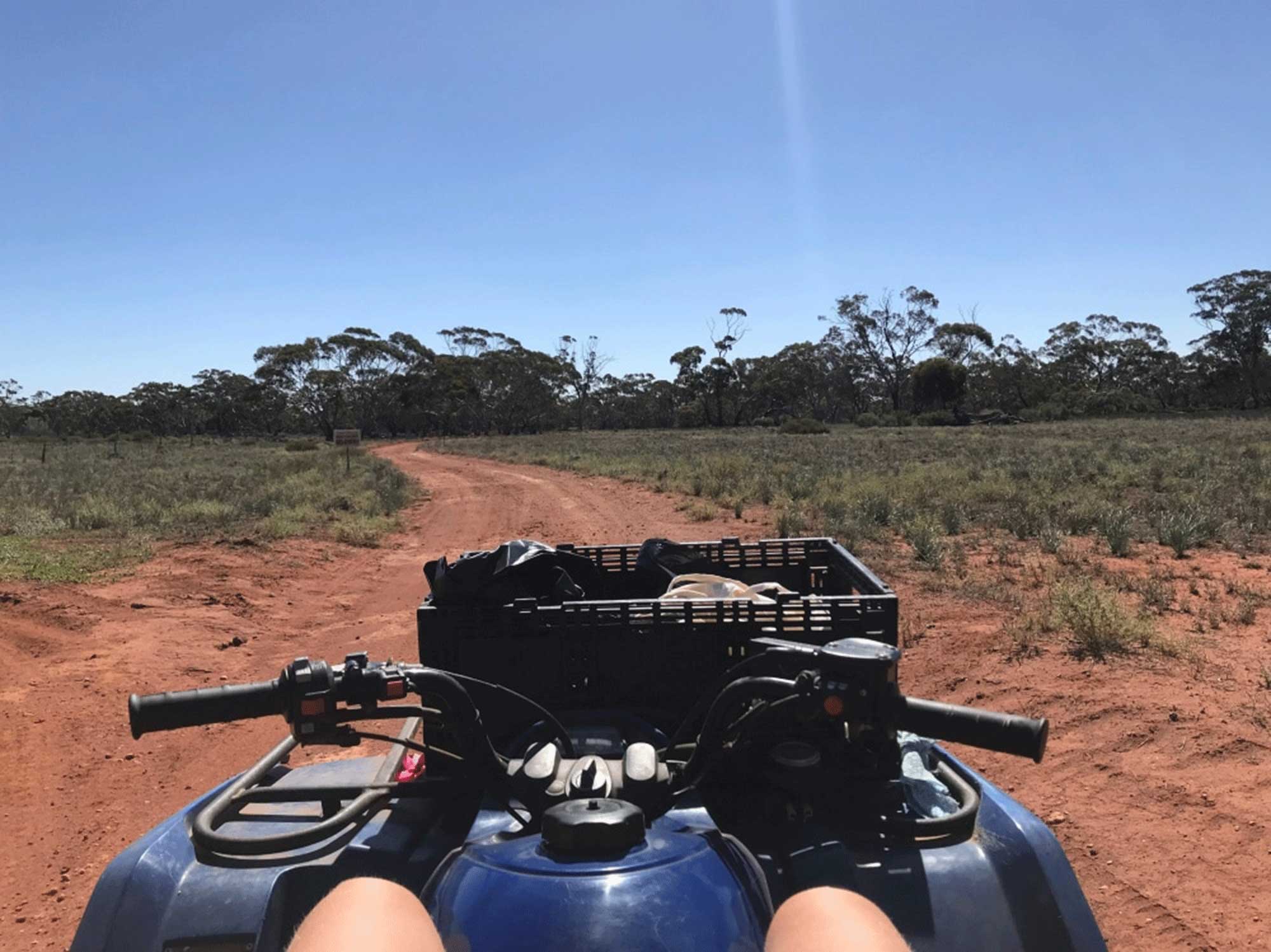
The disadvantages of working in a roadhouse
Living in the Outback means accepting isolation. No pub or bar within 100 km, a small team, but above all very little internet connection to contact family and friends…
The days are long and tiring. Working in the office or in the kitchen in front of quite demanding customers puts you under pressure. For 14 days, your environment is the same from morning to night. After a difficult day, you can’t go out for a drink or just go home to clear your head. You are constantly living with the team!
If you want to fully enjoy an experience like this, it is best to come with someone. As a couple or with friends, you can support each other during the depressing moments.
To read: Best Outback Jobs in Australia
Pay when working in a roadhouse
This offer was ideal because we wanted to work for 3 months before going on a road trip to the west coast. This job had the advantage of being stable, unlike fruit picking! No rainy days or unripe fruit. No pay for performance and no end of season.
However, the pay was less attractive than fruit picking, for which the contractors promised us at least $150 per day. After talking to several workers, we realised that most of them earned about $100 a day (or about $600 a week). The station offered us $630 a week, or $90 a day net. Our days off were paid for and we had accommodation in a single room. All meals at the roadhouse restaurant were also included.
In the end, we each earned $2800 per month! That’s how we were able to save a lot of money for the rest of our adventures.
Our feelings after this experience
This experience took us both out of our comfort zone, really allowing us to develop and grow. Anaïs, who spoke only a few words of English when she arrived in Australia, found herself managing the kitchen of a restaurant. For my part, I had the opportunity to take care of the whole caravan park for a few days when our boss was away. We both experienced the Australian adventure as we had imagined it. Despite the isolation, it was a fantastic experience full of social interactions.
During these 3 months, we were able to establish a connection with the farmers of the station and learned a lot about the typical Australian lifestyle. The Australian people we met every day were surprised to see two French girls out in the Outback. They enjoyed reminding us that 90% of Australians live on the coast! This reminded us that this experience was quite unique, even for locals.
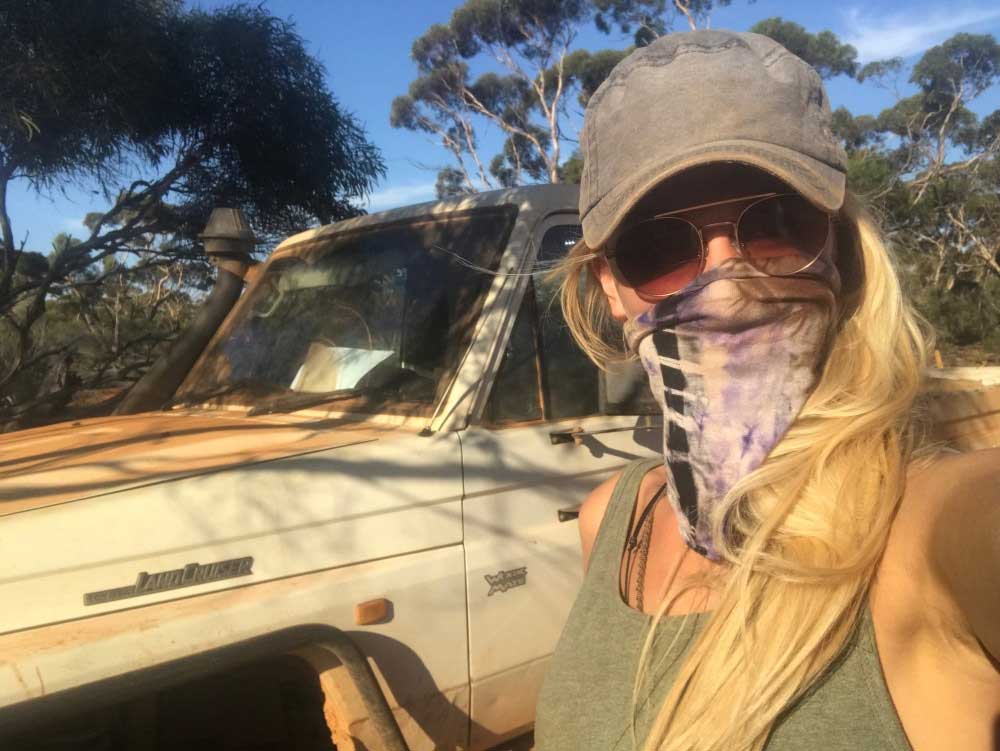




























Make sure all information about wages and accommodation days and hours work is in paper. Working in remote towns is not for the faint hearted. Not all resort and roadhouse make employees pay for meals and accommodation being location so remote it’s a struggle for them to find staff.